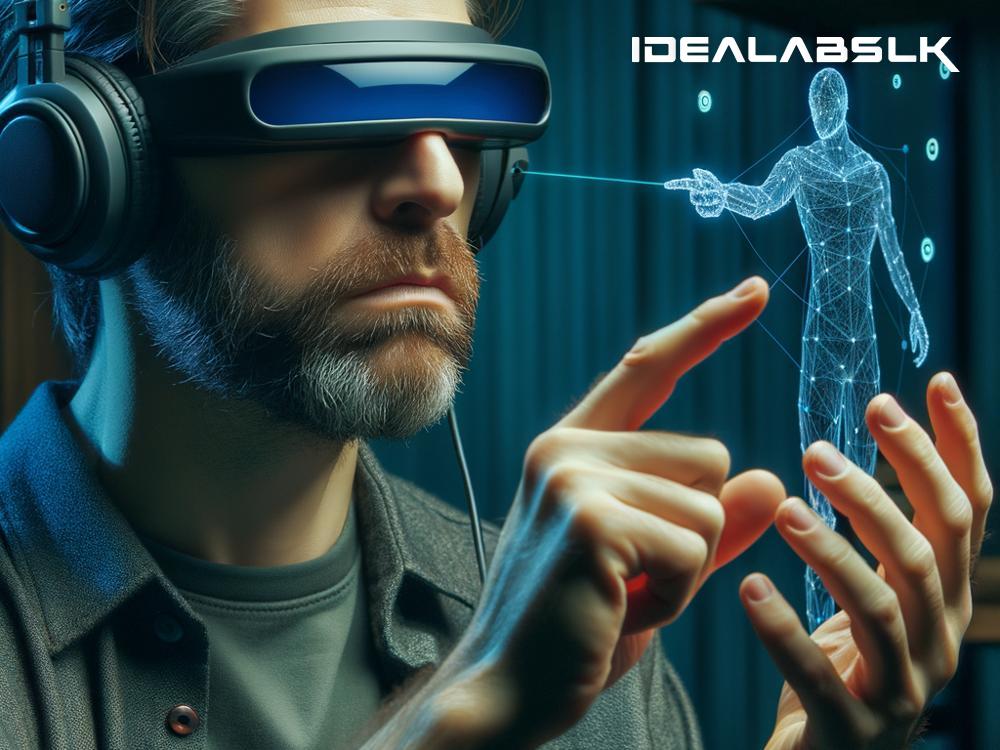The Future of AI-Powered Games for Blind and Visually Impaired Players in 2024
In recent years, we've witnessed an incredible surge in technological advancements, particularly within the realm of artificial intelligence (AI). This has opened up new opportunities and experiences for everyone, including those who are blind or visually impaired. As we look towards 2024, the future of AI-powered games for these individuals is bright and promising, offering not just entertainment but also new ways to connect and learn.
What's Changing for Blind and Visually Impaired Players?
Gone are the days when video games were exclusively visual experiences. The integration of AI into gaming has begun to transform the landscape, making games more inclusive and accessible. For blind and visually impaired players, this means they no longer have to be mere spectators. Now, they can actively participate, experience, and enjoy gaming like never before.
AI-powered games leverage technologies such as voice recognition, spatial sound, and haptic feedback to create rich, immersive experiences that do not rely on sight. Imagine playing a game where you navigate through worlds using sound cues or voice commands, where the storyline unfolds through detailed audio descriptions, or where the vibration patterns of a controller let you feel the game's actions. This is the future we're stepping into in 2024.
The Role of AI in Enhancing Accessibility
AI is at the core of making games more accessible for the visually impaired. By utilizing machine learning and natural language processing, developers can create smart, adaptive games that respond to the player's inputs in intuitive ways. This could mean more sophisticated voice-controlled interfaces or games that adapt to the player's level of vision impairment, offering a personalized gaming experience.
For example, AI can generate dynamic audio environments in real-time, allowing players to perceive the virtual world around them through sound. In strategy games, AI can describe scenes, actions, or even facial expressions of characters, ensuring players receive a fully-rounded experience.
Opportunities for Social and Emotional Connections
Games have always been a powerful medium for connection, and AI-powered games push this to new heights for blind or visually impaired players. Multiplayer games that are accessible can create communities where sight is not a prerequisite for participation. This opens doors for shared experiences, teamwork, and friendships based on mutual interests rather than physical abilities.
Moreover, games have the potential for emotional enrichment. Story-driven games developed with AI can deliver complex narratives and character development through advanced voice acting and sound design, offering a deeply engaging experience comparable to reading a book or watching a movie.
Educational and Training Benefits
The benefits of AI-powered games extend beyond entertainment and social connections; they also hold immense potential for education and training. Games designed for blind and visually impaired players can incorporate educational content in a fun, interactive format, aiding in learning new skills or concepts. For instance, language learning games can use AI to correct pronunciation in real-time, while puzzle games can enhance problem-solving and cognitive abilities.
In addition to academic learning, games can also serve as training tools for real-world navigation and tasks. Simulations created with AI can mimic real-life scenarios, allowing players to practice navigating city streets or recognizing auditory cues in a safe, controlled environment. This could significantly improve the independence and confidence of visually impaired individuals.
Looking Ahead: The Challenges and Possibilities in 2024
As exciting as these advancements are, challenges remain in making AI-powered games universally accessible and enjoyable. Developing games that cater to the varied needs of blind and visually impaired players requires thoughtful design, extensive testing, and ongoing feedback from the community. Furthermore, developers must work to ensure these games are affordable and available on multiple platforms.
Despite these hurdles, the future looks promising. With increasing awareness and advancements in AI and accessibility technologies, 2024 is poised to be a landmark year for inclusive gaming. The potential for AI to create meaningful, enjoyable gaming experiences for blind and visually impaired players is vast, and it's only just beginning to be tapped.
As we move forward, the collaboration between AI experts, game developers, and the visually impaired community will be crucial. Together, they can break down barriers and open up a world of gaming that is truly for everyone. So, let's look towards 2024 with anticipation for the incredible innovations that lie ahead, promising not just games, but experiences that enrich, educate, and connect us all.

